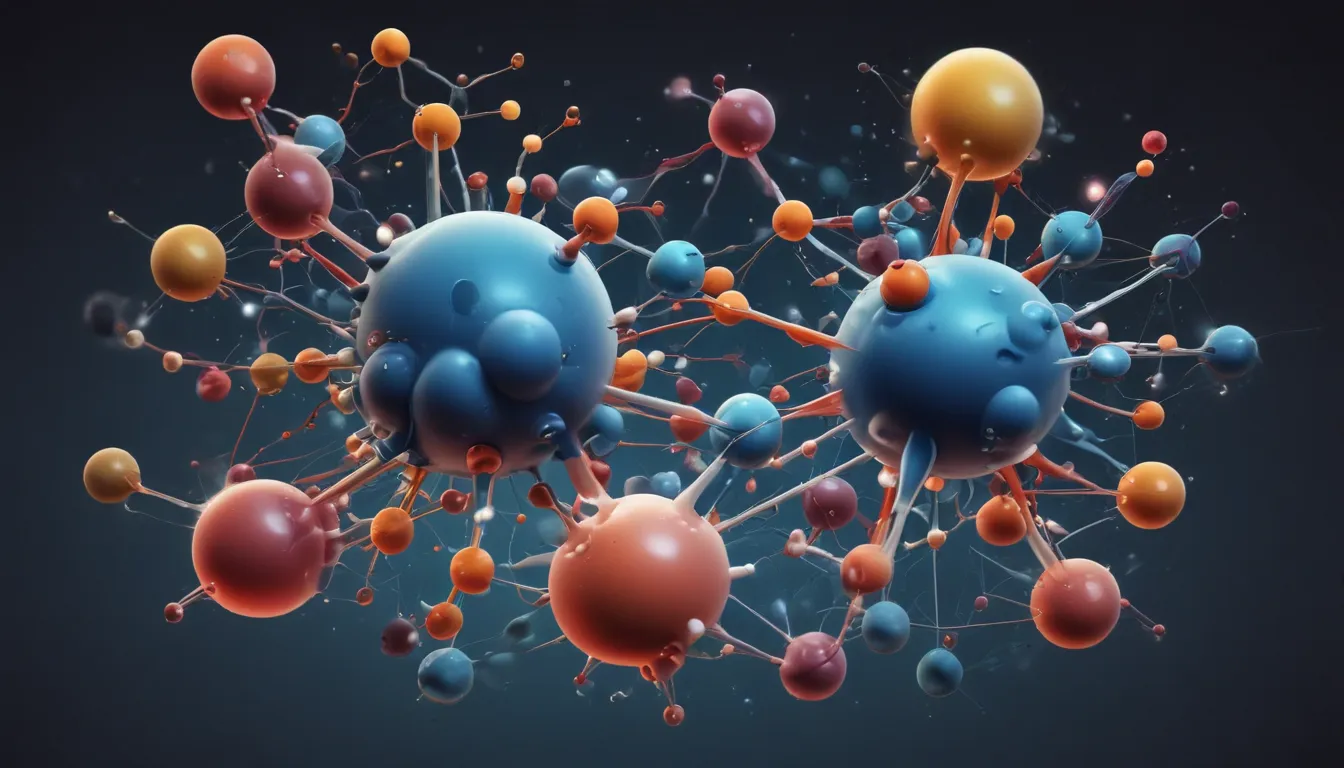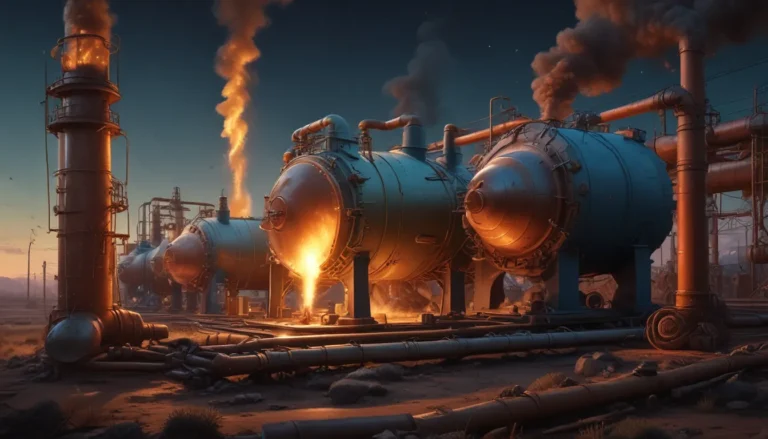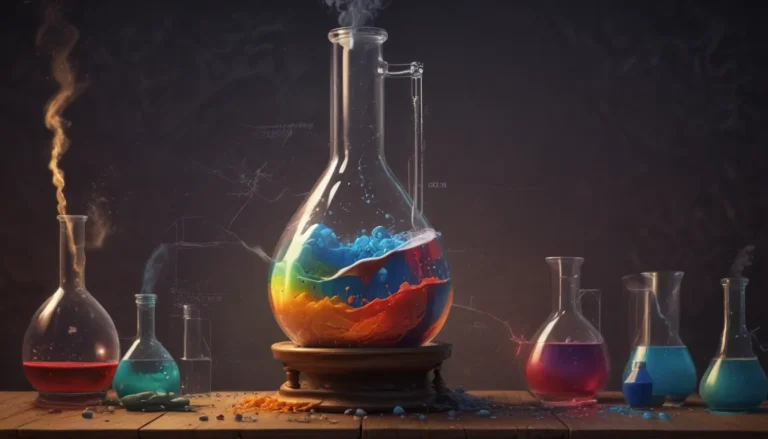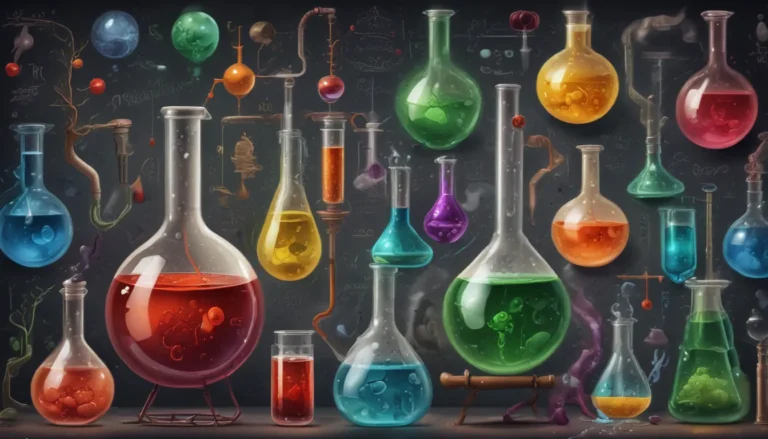A Note About Images: The images used in our articles are for illustration purposes only and may not exactly match the content. They are meant to engage readers, but the text should be relied upon for accurate information.
Welcome to the captivating world of molecules, where the tiniest entities play a crucial role in shaping our understanding of chemistry and the natural world. As we delve into the intricate realm of molecules, we uncover fascinating facts that highlight their importance in everything from the air we breathe to the food we eat. Whether you have a passion for chemistry or simply enjoy learning about science, get ready to embark on a journey that will unveil the wonders and mysteries of these incredibly powerful building blocks of matter.
Understanding the Basics of Molecules
- Molecules are the Building Blocks of Matter: Every substance in the universe is composed of molecules, ranging from the simplest compounds to complex structures like DNA.
- Made Up of Atoms: Atoms, the smallest units of matter, come together to form molecules with unique properties determined by their specific arrangements.
- Varying Sizes: Molecules can range from simple structures like water (H2O) to highly complex molecules like DNA, consisting of thousands of atoms.
The Dynamic Nature of Molecules
- Exist in Different States: Molecules can exist as solids, liquids, or gases depending on factors such as temperature and pressure.
- Constant Motion: Due to the kinetic energy of their atoms, molecules are perpetually in motion, playing a role in various natural phenomena.
- Bonding and Transformation: Molecules can bond together to form new substances with distinct properties, a process crucial in chemical reactions and compound formation.
Unveiling the Complexity of Molecules
- Unique Shapes: The arrangement of atoms within a molecule determines its shape, influencing how molecules interact with each other and their surroundings.
- Polar vs. Nonpolar: Molecules can exhibit different levels of electronegativity, leading them to be either polar or nonpolar, influencing their chemical properties.
- Role in Chemical Reactions: Molecules are integral to chemical reactions, driving changes in their structure that are vital for biological and industrial processes.
The Significance of Molecules in Chemistry
- Studied in Molecular Chemistry: Molecular chemistry focuses on exploring the structures, properties, and interactions of molecules, contributing to various scientific disciplines.
- Essential for Life: Molecules form the basis of biological processes, with vital components like proteins, carbohydrates, and nucleic acids all made up of molecules.
As we unravel the mysteries of molecules, we gain valuable insights into the world of chemistry and its countless applications in fields like medicine, materials science, and environmental studies. By understanding the behavior and properties of molecules, scientists can make groundbreaking discoveries that shape our future.
Delving Deeper into the World of Molecules
The captivating facts about molecules showcased in this article underscore their indispensable role in our lives and the scientific community. From serving as the foundation of matter to driving chemical reactions, molecules are the invisible forces that govern the behavior of substances and hold the key to unlocking the secrets of our world.
In conclusion, molecules represent a fascinating realm of science that continues to inspire curiosity and innovation. By exploring their structure, properties, and interactions, we pave the way for new advancements in technology and a deeper understanding of the natural world.
FAQs: Exploring Molecules Further
-
What is a molecule?
A molecule is a group of two or more atoms held together by chemical bonds, representing the smallest unit of a compound with all its chemical properties. -
How are molecules formed?
Molecules are formed through chemical bonding, where atoms share electrons to achieve stability through covalent or ionic bonds. -
What are the different types of molecules?
Various types include organic molecules with carbon atoms, inorganic molecules without carbon, and biomolecules essential for life. -
How do molecules interact with each other?
Molecules interact through forces like van der Waals, hydrogen bonds, and electrostatic interactions, influencing their properties. -
Can molecules exist in different states of matter?
Yes, molecules can exist as solids, liquids, or gases depending on their arrangement and intermolecular forces. -
Are all molecules visible to the naked eye?
No, many molecules are microscopic and require specialized techniques like microscopy for observation. -
Can molecules be synthesized in a laboratory?
Yes, scientists can synthesize molecules through chemical reactions to create new compounds with specific properties. -
Can molecules change their shape?
Molecules can change shape through molecular conformation, involving rotation around bonds or atom movements. -
What role do molecules play in chemical reactions?
Molecules are key participants in chemical reactions, driving transformations as they break and form bonds. -
How are molecules named?
Molecules are named based on chemical nomenclature, reflecting their composition and structure for effective communication. -
Is it possible to see individual molecules?
Advancements in technology allow for the visualization of individual molecules using techniques like microscopy, enabling observation at the atomic scale.
Explore the realm of molecules further to uncover the intricate workings of these tiny yet powerful entities that shape the world around us. Dive into the captivating world of chemistry and unlock the hidden wonders of molecules that fuel scientific discovery and innovation.






